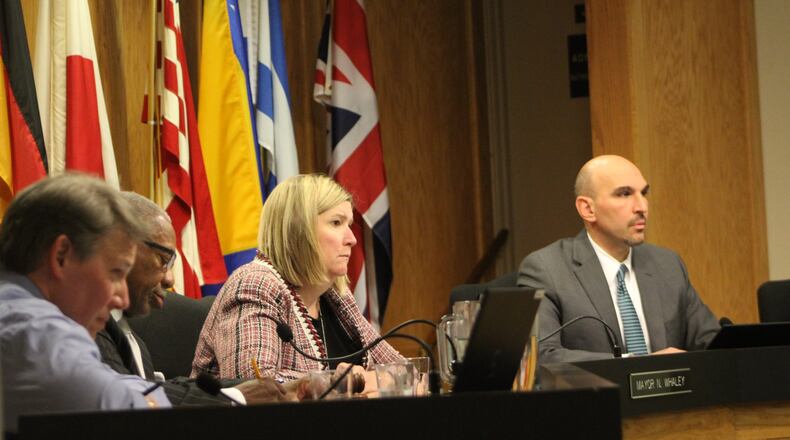But the city wants to be very cautious in its 2020 budget plans because of the unprecedented length of the current economic expansion and the inevitability of a recession, said Diane Shannon, Dayton’s director of procurement, management and budget.
The Dayton City Commission at its last meeting approved the city manager’s 2020 budget recommendations, which predicts the first decline in general fund revenue since 2016.
MORE: Dayton income tax collections up $4.4 million: What’s really going on
City officials say the city always is conservative about its finances, and the 2020 budget continues to make thoughtful and strategic investments to try to improve life for Dayton’s citizens.
“The 2020 budget preserves current service levels, honors our Issue 9 commitments, allocates resources toward improving customer service and increases investments in our neighborhoods,” said Dayton City Manager Shelley Dickstein.
Next year, the city projects it will take in about $183.02 million in general fund revenue, which is down 0.5% or $840,000 from the final 2019 estimate.
If the forecast is correct, this would be the first revenue decline in four years. In 2016, the city’s general fund revenue fell 0.2%.
The decline is modest, especially compared to the steep, double-digit percentage decreases the city suffered during the worst years of the Great Recession, Shannon said.
Next year, general fund expenses are estimated at $187.3 million, which is up 1.9% compared to the revised 2019 budget and up 2.7% from the original 2019 budget.
City officials said 2019 was a difficult year for the city because of crises, emergencies and unplanned costs including the KKK-affiliated hate rally, the Memorial Day tornadoes, the mass shooting in the Oregon District and other challenges.
MORE: Dayton faces long-term budget issues, despite income tax hike
Despite all those challenges, the city had a balanced budget this year without needing to dip into its cash savings, which was nearly miraculous, said Dayton Mayor Nan Whaley.
The city originally forecast taking about $1.5 million from its cash reserve this year.
Though that didn’t happen, the city next year projects using about $2 million from its savings to balance the books.
The city’s “extraordinary year” of crises and trauma required staff’s time and resources and definitely resulted in mental fatigue, but it is incredible how much the organization managed to get accomplished, Dickstein said.
“I think that it really speaks to the culture of the organization, the passion of our public servants, that they come to work to make a difference in this community — it’s not just a job to them,” she said.
MORE: Dayton Arcade, JK McIntire building win millions in tax credits from state
Personnel costs, the general fund’s largest expense, are expected to increase 4.5% to $133.3 million next year — which is about $5.7 million higher than the original 2019 budget.
The city budgets conservatively to avoid running into troubles, and if a downturn doesn’t strike next year, it likely will in 2021, said Whaley.
“We are always on the conservative side when it comes to budget, and only budget,” she said.
The city’s income tax accounts for more than 70 percent of general fund revenue, which makes the city very susceptible to economic downturns, Whaley said.
The local economy tends to sour before a national recession, and the city needs to be prepared, Whaley said.
“I am not an economist, but I think (a recession is coming), and I think Dayton feels recessions before everyone else,” she said. “Unfortunately, we are a tip of the spear on recessions.”
About the Author

